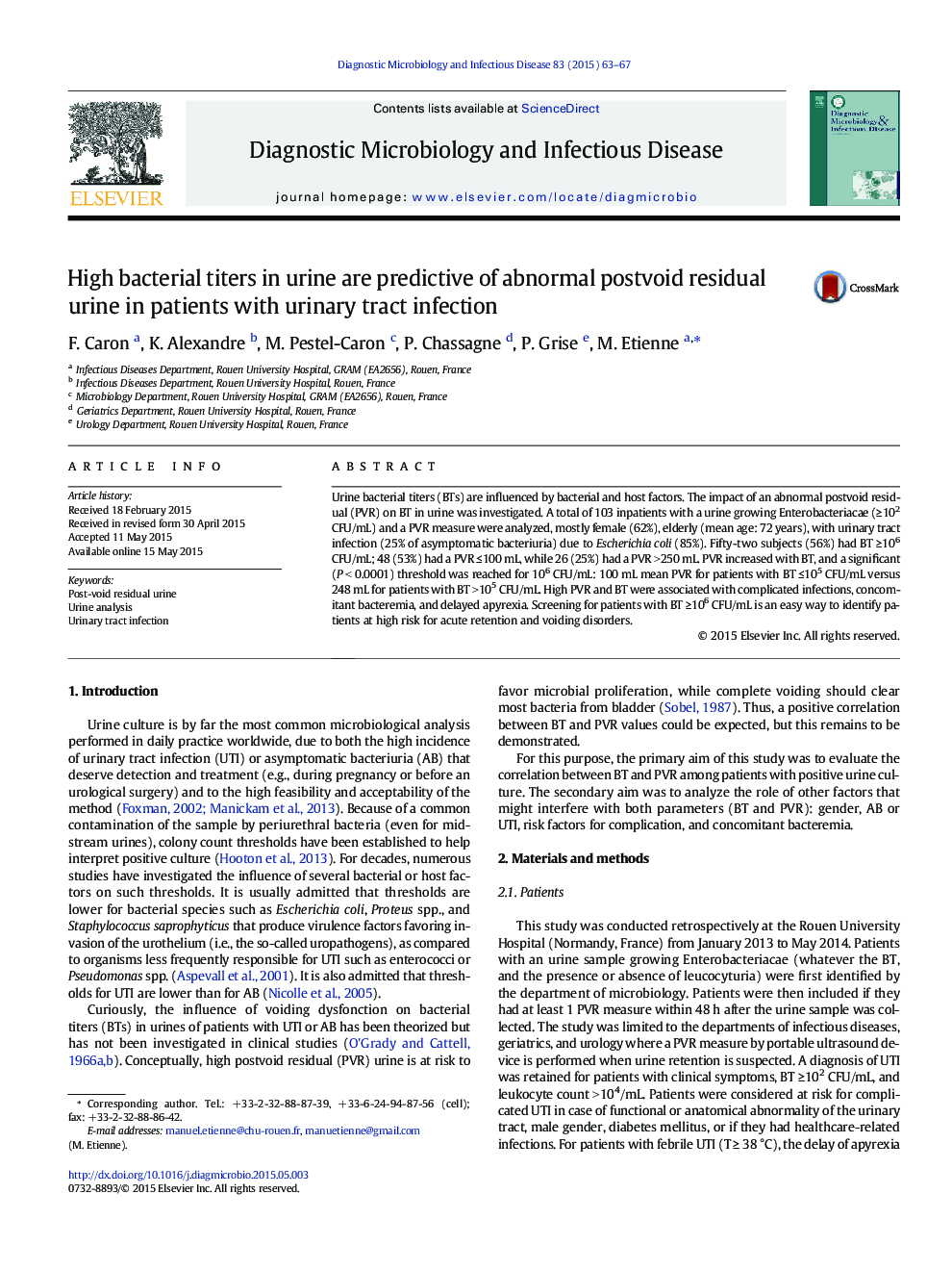| Article ID | Journal | Published Year | Pages | File Type |
|---|---|---|---|---|
| 6115595 | Diagnostic Microbiology and Infectious Disease | 2015 | 5 Pages |
Abstract
Urine bacterial titers (BTs) are influenced by bacterial and host factors. The impact of an abnormal postvoid residual (PVR) on BT in urine was investigated. A total of 103 inpatients with a urine growing Enterobacteriacae (â¥102 CFU/mL) and a PVR measure were analyzed, mostly female (62%), elderly (mean age: 72 years), with urinary tract infection (25% of asymptomatic bacteriuria) due to Escherichia coli (85%). Fifty-two subjects (56%) had BT â¥106 CFU/mL; 48 (53%) had a PVR â¤100 mL, while 26 (25%) had a PVR >250 mL. PVR increased with BT, and a significant (P < 0.0001) threshold was reached for 106 CFU/mL: 100 mL mean PVR for patients with BT â¤105 CFU/mL versus 248 mL for patients with BT >105 CFU/mL. High PVR and BT were associated with complicated infections, concomitant bacteremia, and delayed apyrexia. Screening for patients with BT â¥106 CFU/mL is an easy way to identify patients at high risk for acute retention and voiding disorders.
Related Topics
Life Sciences
Immunology and Microbiology
Applied Microbiology and Biotechnology
Authors
F. Caron, K. Alexandre, M. Pestel-Caron, P. Chassagne, P. Grise, M. Etienne,
